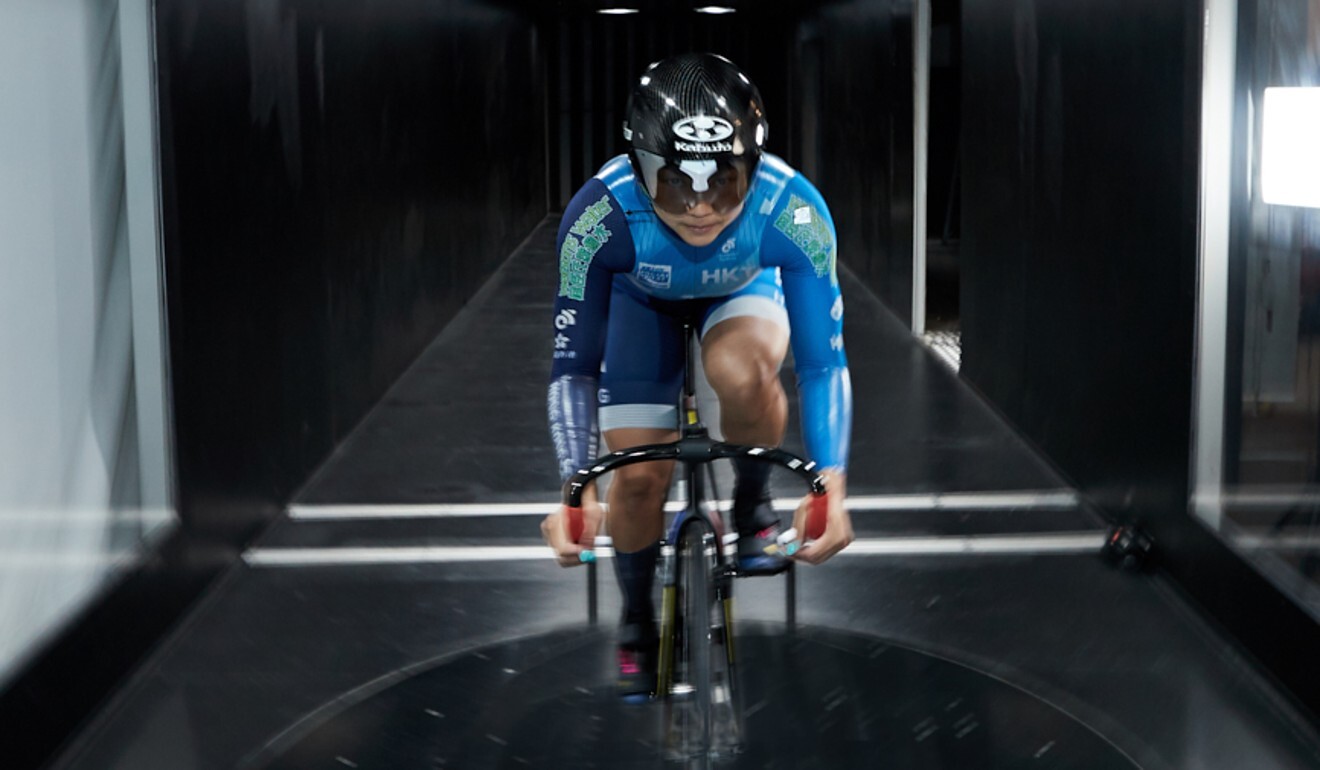
Hong Kong property tycoon gives another HK$4 million to tech initiative that designed Olympic cycling medallist Sarah Lee’s suit
- Sun Hung Kai Properties executive director Adam Kwok ups his donation to sports aerodynamics initiative following Sarah Lee’s win
- Kwok says he hopes wind tunnel initiative will go on to innovate in other sports, such as windsurfing and swimming
Kwok said he hoped the wind tunnel initiative would go on to innovate in other sports, such as windsurfing and swimming, by studying how to reduce drag in water.
Tokyo Olympics: Hong Kong pride for Sarah Lee’s bronze and best-ever Games medal haul
“I would never have imagined the speed suit developed there – the bike, the helmet and everything else tested there by Sarah and the athletes – would be able to help today,” Kwok said on Sunday at a shopping mall in Kwun Tong, where he was watching Lee’s bronze medal win along with a crowd of Hong Kong supporters.
He urged both the government and the private sector to continue investing in the field of sports technology, pointing out that good gear was part of the effort to ensure the city’s athletes performed at their peak. Lee’s lead of 0.02 seconds during the women’s sprint heat on Saturday was a prime example, Kwok said.
“These marginal gains are the difference between whether you are on the podium and getting a medal or not … so we should collaborate more with local universities on these kinds of innovation,” he said. “Long-term financial support for sport and athletes is just as important as one-off cash prizes.”
Kwok is also a standing committee member of the All China Youth Federation, president of the Hong Kong United Youth Association and organiser of the Hong Kong Cyclothon. He previously donated HK$6 million to the sports aerodynamics initiative, which was launched in 2019.

Led by Zhang Xin, chair professor of HKUST’s department of mechanical and aerospace engineering, the project developed low-resistance suits for the cycling team that can help reduce drag during races. The athletes were also able to adjust their riding stance while testing the equipment in the project’s wind tunnel.
Zhang, who was also at the mall to support Lee, said he was very proud of his achievement. Support from Kwok and the government’s Innovation and Technology Fund enabled his team to develop the gear in the relatively short span of two years, he added.
“We hope we can continue to help younger athletes with Kwok’s support,” Zhang said.
Kwok noted that the technology developed for cycling could also be commercialised.
“We could develop bicycles and helmets unique to Hong Kong or China. This could be an opportunity to also create more employment,” he said.

Meanwhile, Kwok said training and exchange opportunities with the Chinese national team were also helpful to Hong Kong’s athletes. He added the cycling team was also training in the highlands of China’s Yunnan province in preparation for the next major sporting events.
“This group of Olympians have many events upcoming, such as the Asian Games next year in Hangzhou, and I’m sure they are ready to meet the challenge, and our support for them will only grow,” he said.
Cycling could give youth in the cities across the region another opportunity to interact, and give athletes from the various cities a chance to meet, he said.

